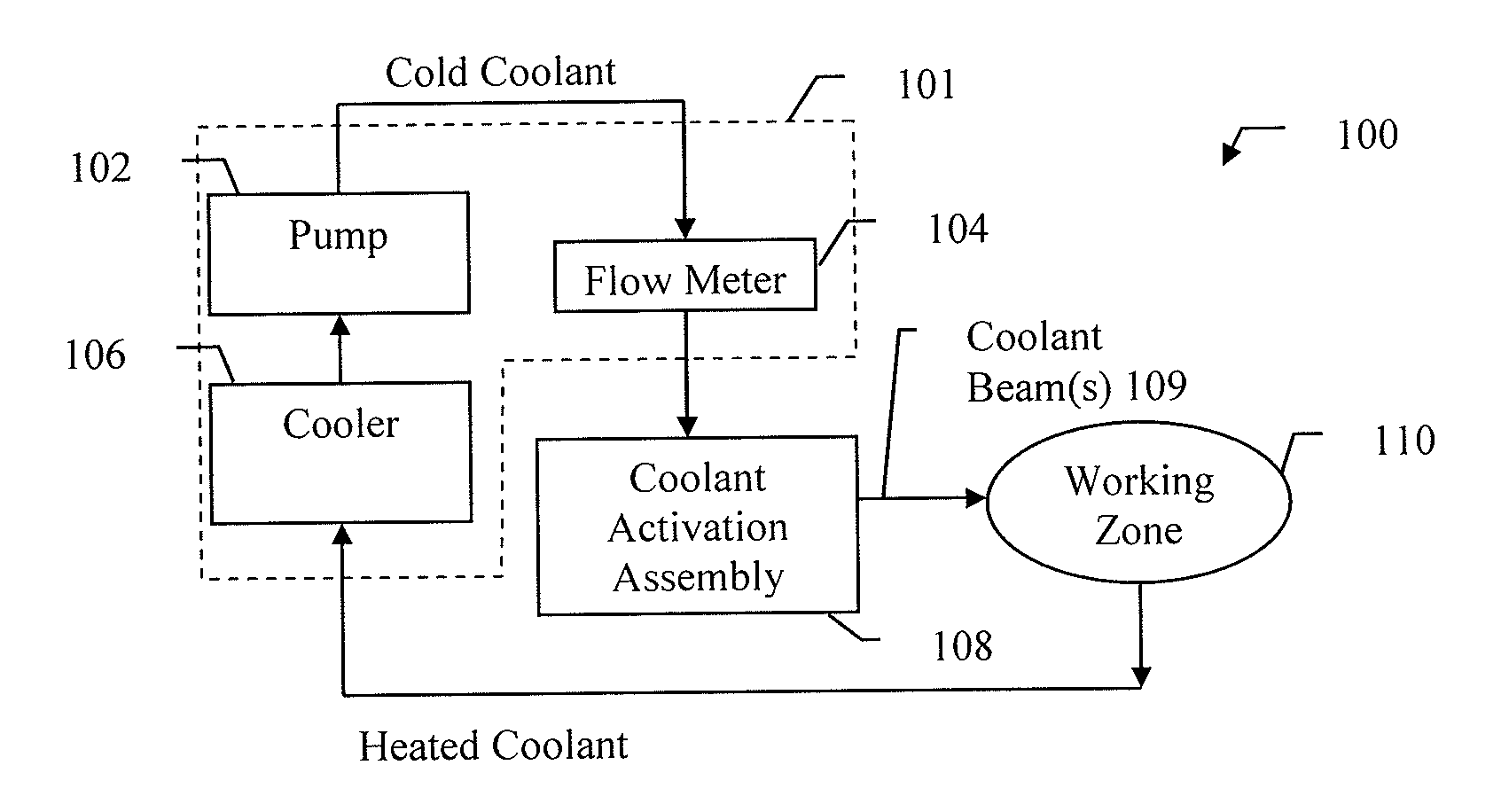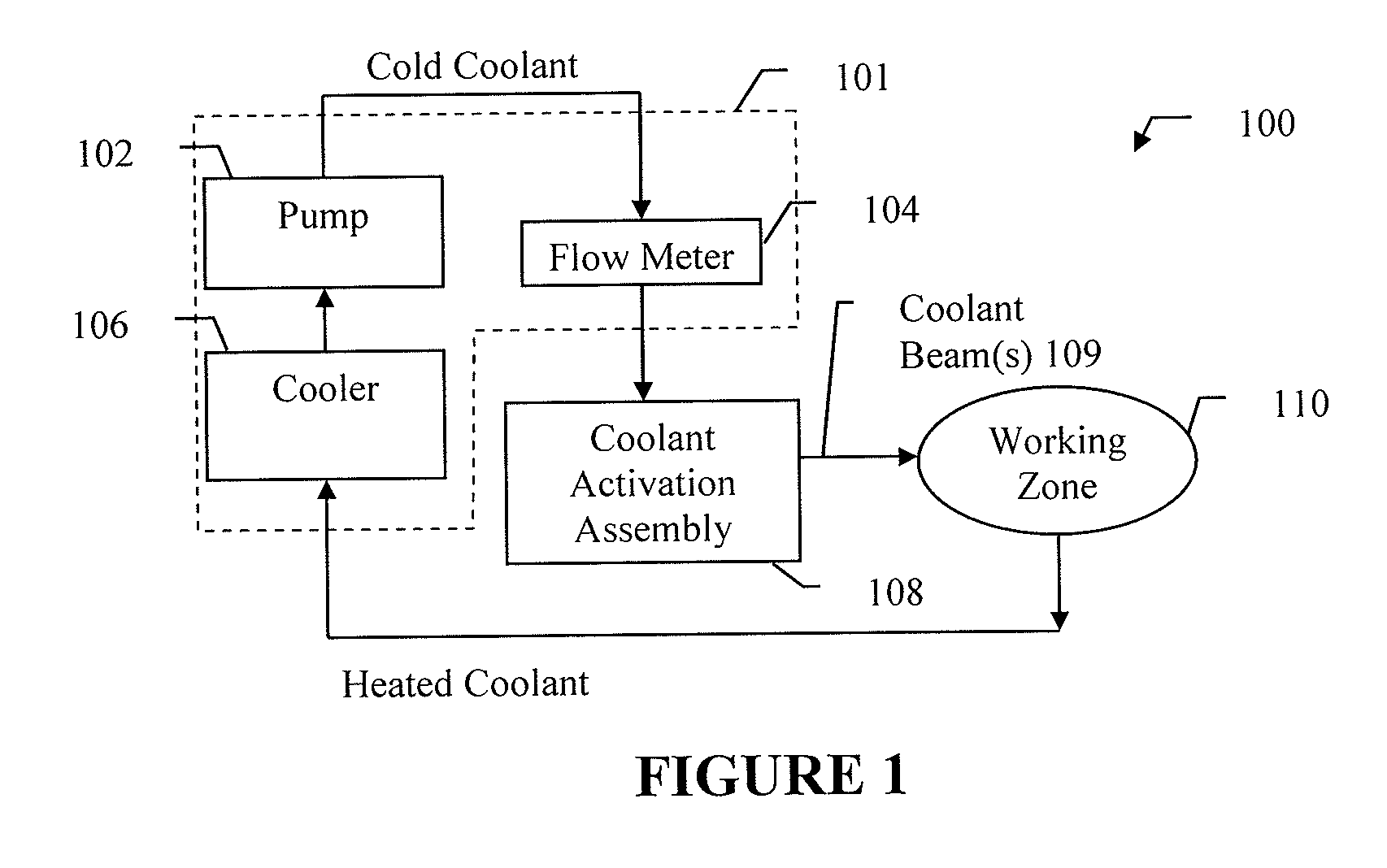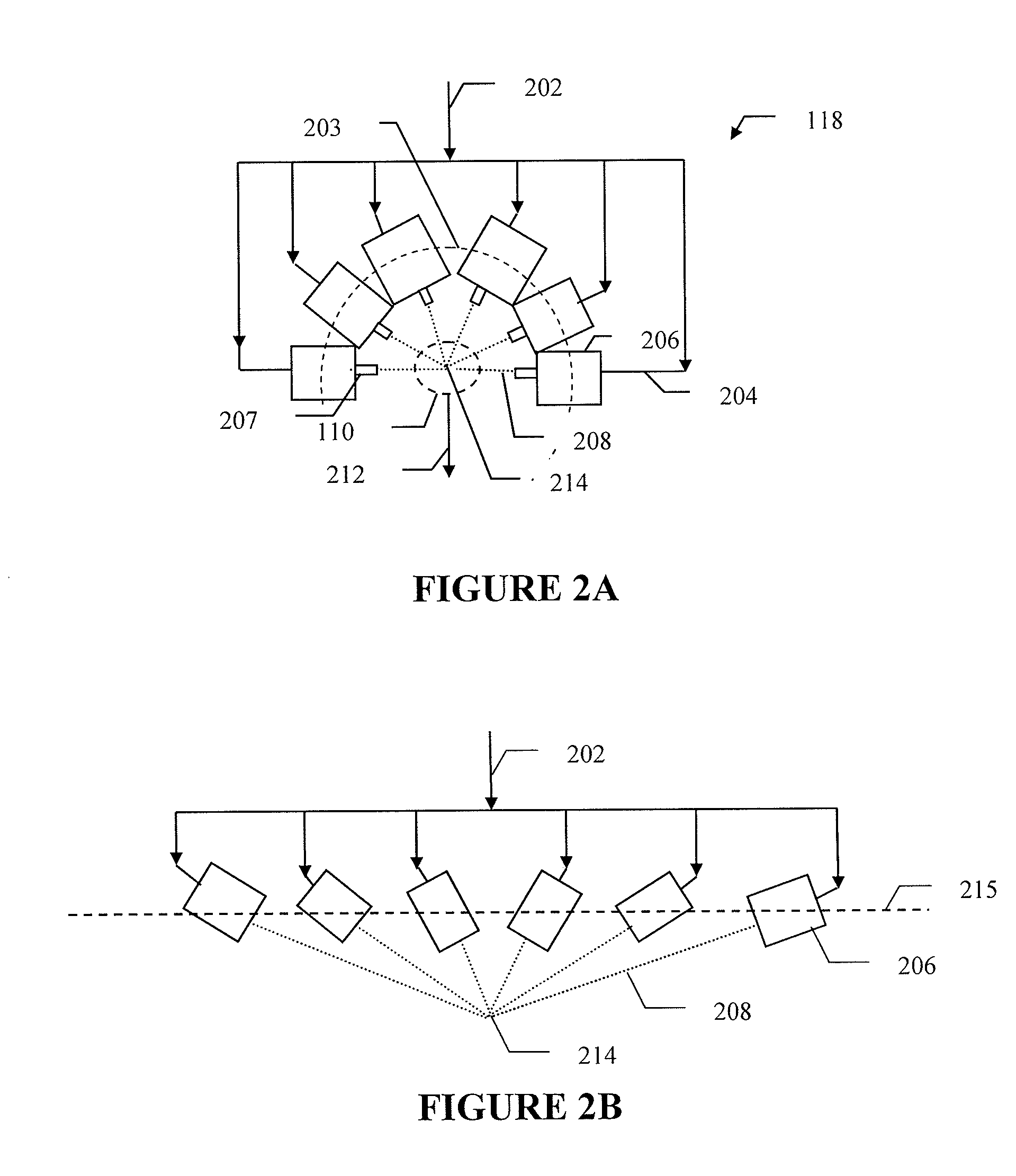System, apparatus and method for providing cooling
a technology of cooling system and cooling device, applied in the field of machining, can solve the problems of reducing fatigue strength, limiting the thermal damage of workpieces, and reducing the fatigue strength of workpieces, and achieve the effect of improving the cooling
- Summary
- Abstract
- Description
- Claims
- Application Information
AI Technical Summary
Benefits of technology
Problems solved by technology
Method used
Image
Examples
Embodiment Construction
[0064]Now turning to the drawings, depicted in FIG. 1 is an embodiment of a system 100 for providing enhanced cooling in a machining process. As shown in the figure, system 100 includes a coolant supply 101 and a coolant activation assembly 108 that draws cold coolant from the coolant supply 101. The coolant activation assembly 108 generates a plurality of coolant beams 109, which is applied to a working zone 110 so that the heat generated within the working zone 110 is taken away by the coolant. The heated coolant, which absorbs and carries away the heat, is returned to the coolant supply 101, which cools and circulates the coolant back to the coolant activation assembly 108. As discussed above, the coolant can be gas or fluid as used in any existing cooling system.
[0065]The coolant supply 101 further includes a cooler 106 for cooling the heated coolant, a pump 102 for driving the coolant through the cooler 106 to form a coolant flow and deliver the cold coolant flow to the coolant...
PUM
| Property | Measurement | Unit |
|---|---|---|
| Fraction | aaaaa | aaaaa |
| Temperature | aaaaa | aaaaa |
| Temperature | aaaaa | aaaaa |
Abstract
Description
Claims
Application Information
 Login to View More
Login to View More - R&D
- Intellectual Property
- Life Sciences
- Materials
- Tech Scout
- Unparalleled Data Quality
- Higher Quality Content
- 60% Fewer Hallucinations
Browse by: Latest US Patents, China's latest patents, Technical Efficacy Thesaurus, Application Domain, Technology Topic, Popular Technical Reports.
© 2025 PatSnap. All rights reserved.Legal|Privacy policy|Modern Slavery Act Transparency Statement|Sitemap|About US| Contact US: help@patsnap.com



